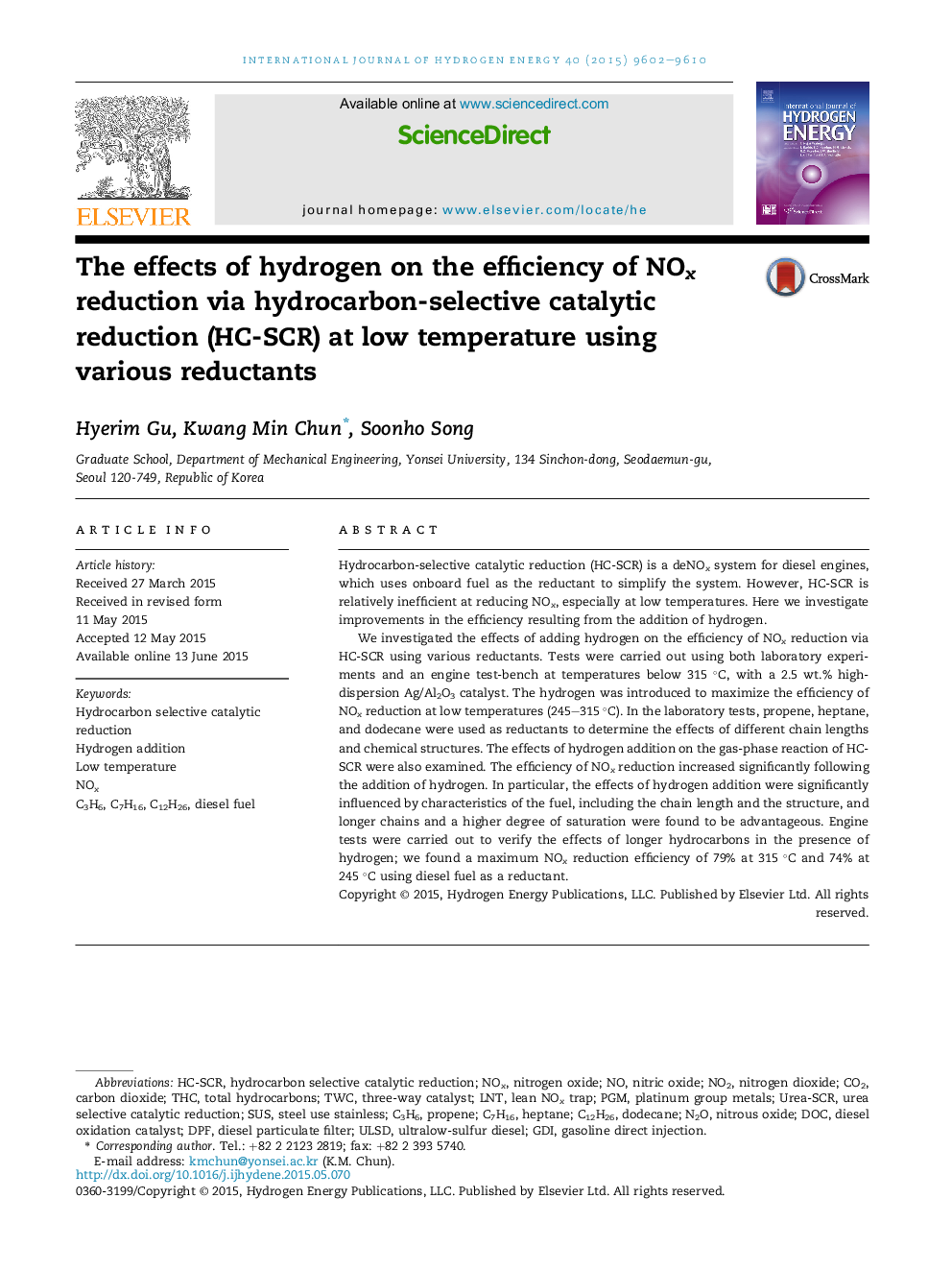| Article ID | Journal | Published Year | Pages | File Type |
|---|---|---|---|---|
| 7715374 | International Journal of Hydrogen Energy | 2015 | 9 Pages |
Abstract
We investigated the effects of adding hydrogen on the efficiency of NOx reduction via HC-SCR using various reductants. Tests were carried out using both laboratory experiments and an engine test-bench at temperatures below 315 °C, with a 2.5 wt.% high-dispersion Ag/Al2O3 catalyst. The hydrogen was introduced to maximize the efficiency of NOx reduction at low temperatures (245-315 °C). In the laboratory tests, propene, heptane, and dodecane were used as reductants to determine the effects of different chain lengths and chemical structures. The effects of hydrogen addition on the gas-phase reaction of HC-SCR were also examined. The efficiency of NOx reduction increased significantly following the addition of hydrogen. In particular, the effects of hydrogen addition were significantly influenced by characteristics of the fuel, including the chain length and the structure, and longer chains and a higher degree of saturation were found to be advantageous. Engine tests were carried out to verify the effects of longer hydrocarbons in the presence of hydrogen; we found a maximum NOx reduction efficiency of 79% at 315 °C and 74% at 245 °C using diesel fuel as a reductant.
Keywords
DOCC3H6PGMTWCHC-SCRDPFLNTUrea-SCRULSDTHCN2OGDISUSNOxHydrogen additionNitrous oxidenitrogen oxidegasoline direct injectionlean NOx trapDodecaneLow temperatureCarbon dioxideThree-way catalystPlatinum group metalsDiesel particulate filterNitrogen dioxideNO2Nitric oxideHeptanePropenediesel oxidation catalystCO2Total hydrocarbons
Related Topics
Physical Sciences and Engineering
Chemistry
Electrochemistry
Authors
Hyerim Gu, Kwang Min Chun, Soonho Song,
